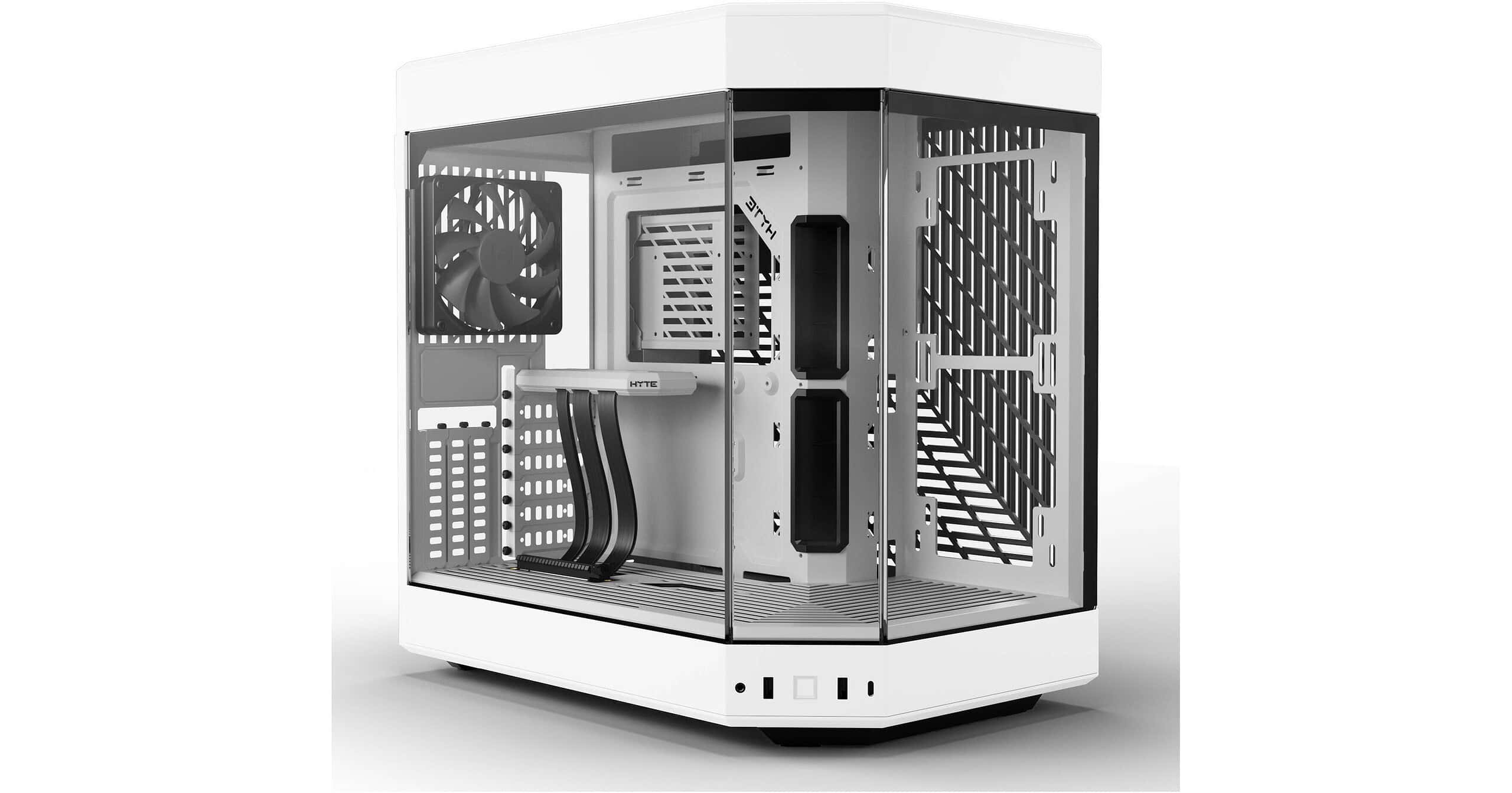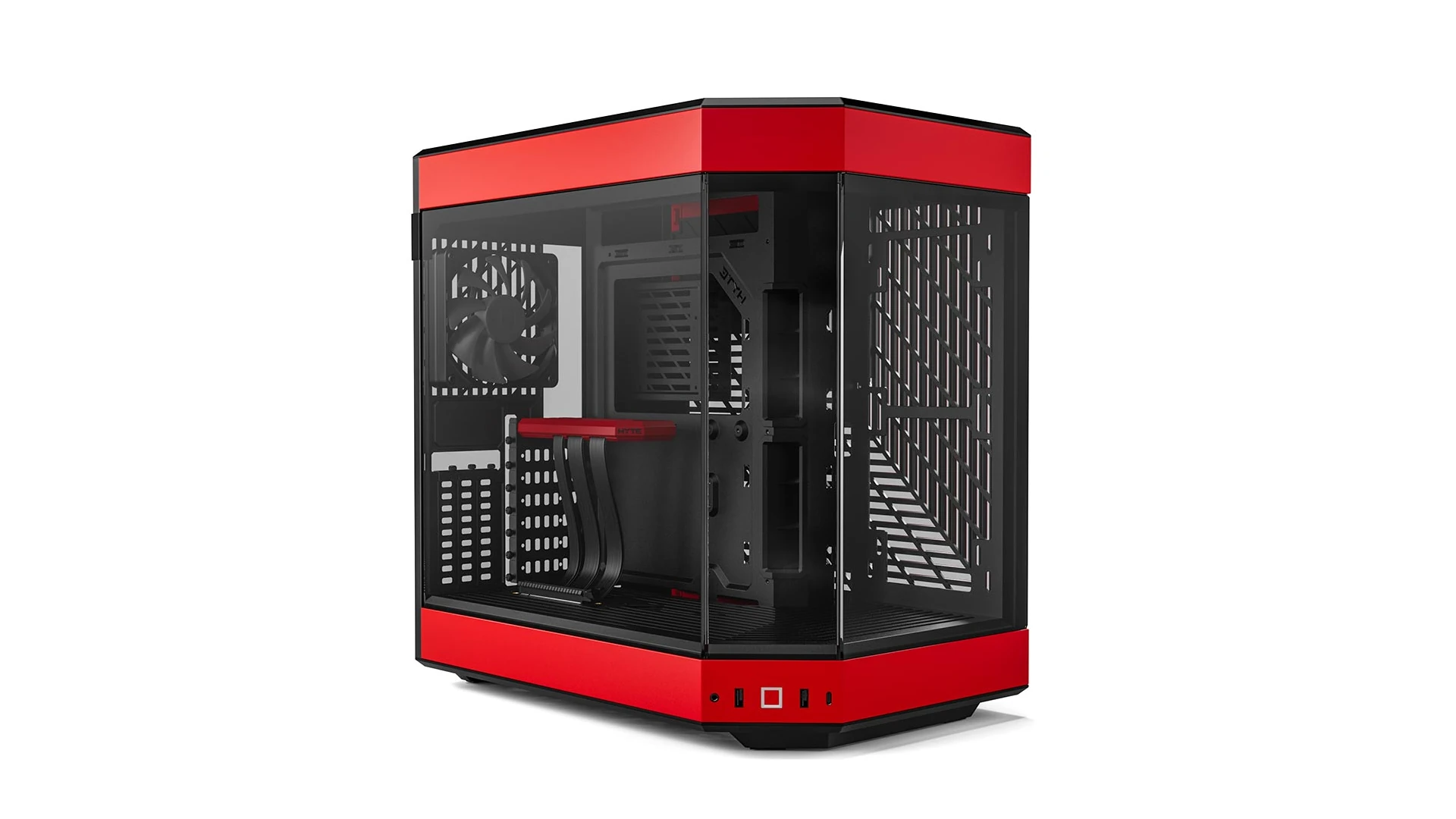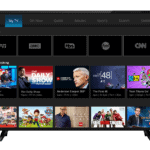The popular PC case manufacturer HYTE has officially paused all new shipments to the United States, citing untenable costs brought on by steep U.S. import tariffs. The move marks a significant blow to PC builders and enthusiasts across the country, particularly those seeking HYTE’s widely praised Y60 and Y70 cases.
While existing pre-orders will still be honored, HYTE is no longer sending new inventory stateside, opting instead to redirect supplies to other global regions.
What Triggered HYTE’s Decision?

This development follows the expansion of U.S. tariffs targeting Chinese-manufactured goods—tariffs that have made importing key components financially unfeasible. While PC cases specifically are not subject to the newest 145% tariff rate, they still face a burdensome 70% in cumulative duties. This includes:
- A 20% general import duty
- A 25% tariff on aluminum derivative products (which most premium PC cases use)
- Additional logistical and compliance costs that further squeeze profit margins

HYTE stated the company can no longer absorb these combined costs without either pricing themselves out of the market or taking a significant financial hit.
A Familiar Story in the Hardware Industry
HYTE’s retreat from the U.S. echoes a growing trend. Notably:
- 8BitDo, the respected retro controller maker, also suspended U.S. shipments.
- Keyboardio, a boutique custom keyboard company, has ceased U.S. orders entirely.
- Historically, CaseLabs, another premium case maker, was forced to shut down after tariff hikes made their business model unsustainable.
These examples paint a troubling picture for the future of boutique PC hardware in America, especially as global supply chains remain fragile and geopolitical tensions continue to affect trade routes.
Production Relocation Plans Underway
In response, HYTE is exploring relocating manufacturing away from China—potentially to countries like Vietnam or Thailand. However, this isn’t a quick fix. According to internal estimates, moving production would raise manufacturing costs by 30–40%. That cost increase would inevitably be passed on to consumers in the form of higher retail prices.
In the meantime, HYTE’s U.S. product availability will shrink dramatically, and resellers may begin marking up remaining inventory. PC builders should expect:
- Reduced access to flagship HYTE products
- Longer wait times for backordered stock
- Sharp price increases if production shifts to tariff-free countries
What U.S. Customers Should Know
| Topic | Details |
|---|---|
| Pre-Orders | Will still be fulfilled as promised |
| New Orders | Paused indefinitely in the U.S. |
| Alternative Availability | Products still available in Europe and parts of Asia |
| Future Production Plans | Potential move to Vietnam or Thailand by late 2025 |
| Price Implications | 30–40% cost increases likely if relocation occurs |
This situation reinforces the vulnerability of niche tech brands in the face of sweeping global trade policies. As the market adjusts, PC builders may need to reconsider their parts lists or buy while supplies last.
Key Takeaways
- Hyte has suspended PC case shipments to the US due to unsustainable costs from new tariffs on Chinese imports.
- The PC component industry faces growing pressure with multiple manufacturers halting or adjusting US sales.
- Consumers should prepare for higher prices on PC components if shipments resume.
HYTE Halts PC Case Shipments to the United States Over Tariffs
PC case maker HYTE has suspended shipments to the United States due to significant challenges caused by recent tariff changes. The company faces difficult decisions as import costs have become unsustainable for their business model.
Overview of the Tariff Decision
HYTE has temporarily suspended U.S. shipments due to newly introduced tariffs on Chinese imports. The company cited “unsustainable import costs” as the primary reason for this business decision.
These tariffs are part of broader trade tensions between the United States and China, specifically targeting electronics and computer components manufactured in China. For companies like HYTE, which rely heavily on Chinese manufacturing, these tariffs create immediate financial pressure.
HYTE isn’t alone in this challenge. Other tech manufacturers are also struggling with these new economic conditions. The tariffs have effectively made it too expensive for HYTE to maintain its previous pricing structure while importing their products.
Impact on Manufacturing and Supply Chains
HYTE has been forced to move their manufacturing facilities and drastically reduce their product offerings. Currently, they’re only offering one consumer case model in the U.S. market.
This shift highlights three major supply chain challenges:
- Production costs: Higher tariffs mean significantly increased costs for Chinese-made components
- Logistics disruption: Rerouting supply chains requires time and investment
- Inventory management: Companies must decide what to do with existing stock
For smaller PC component makers like HYTE, these disruptions are particularly difficult to absorb. Unlike larger companies with diverse manufacturing locations, specialized manufacturers often lack immediate alternatives to Chinese production.
Consequences for U.S. Consumers and the PC Industry
American PC enthusiasts face limited choices and likely price increases. HYTE was known for innovative designs, and this pause affects the market variety available to consumers.
The impact extends beyond just HYTE:
- Similar companies are making tough decisions about U.S. sales
- Custom keyboard makers are stopping U.S. orders entirely
- Even Razer has halted laptop sales to U.S. consumers
This creates a ripple effect throughout the PC industry. As manufacturers pass costs to consumers or exit the market, building custom PCs becomes more expensive. The timing is particularly challenging as tech enthusiasts face component price increases across multiple categories.
Industry analysts expect other manufacturers to announce similar measures if the tariff situation remains unchanged.
Industry Reactions and Broader Implications
Hyte’s decision to halt US shipments has sent ripples through the tech manufacturing sector, triggering varied responses from competitors and raising questions about the sustainability of PC component imports under current tariff policies.
Responses From Competing Brands Like Corsair And Logitech
Corsair has taken a cautious approach, announcing plans to diversify manufacturing locations while maintaining some US shipments with adjusted pricing. The company issued a statement acknowledging the “challenging tariff environment” but committed to serving American customers despite thinner profit margins.
Logitech, with more diversified manufacturing across multiple countries, appears less affected by the current situation. Their CEO recently indicated that while tariffs create “headwinds,” their global supply chain provides flexibility that smaller manufacturers like Hyte lack.
Other PC component manufacturers are exploring different strategies. Some are considering relocating production to countries not impacted by the tariffs, while others are absorbing costs temporarily to maintain market share.
Industry analysts note that larger brands have more negotiating power with suppliers and can better weather temporary economic disruptions.
Historical Context: Trade Policy And Economic Shifts
This isn’t the first time tariffs have disrupted tech manufacturing. During the previous administration, similar policies created supply chain challenges that led to price increases of 10-15% on many consumer electronics.
The situation echoes historical patterns from America’s industrial development. During the late 19th century, railroad companies like those run by Jay Gould faced similar challenges with imported steel tariffs, which initially protected domestic producers but eventually led to higher infrastructure costs.
The PC industry serves as a bellwether for tariff impacts because it touches virtually every business sector and consumer market. Unlike the transcontinental railroad era, today’s global supply chains are more complex and interdependent.
Companies like Qualcomm that focus on intellectual property rather than physical manufacturing face different challenges in this environment, primarily around licensing and patent considerations.
Potential Negotiations And Future Outlook
Industry associations representing companies like Hyte are actively lobbying for tariff exemptions on specific components. These efforts focus on demonstrating how these tariffs harm American businesses and consumers more than they protect domestic manufacturing.
Trade analysts suggest three potential paths forward. First, targeted exemptions for certain components. Second, new trade agreements with alternative manufacturing countries like Vietnam and Malaysia. Third, companies investing in more automated US-based manufacturing to reduce labor cost disadvantages.
Some manufacturers are adopting a “wait and see” approach, temporarily suspending shipments while monitoring political developments. Industry forecasts suggest that if tariffs remain in place for more than six months, we’ll likely see permanent shifts in manufacturing locations and higher consumer prices.
Smartphone makers like Honor and OPPO are watching closely, as their supply chains overlap significantly with PC component manufacturers.
Frequently Asked Questions
As Hyte stops PC case shipments to the USA, customers face several concerns about alternatives, warranties, and future availability. The decision stems directly from recent tariff changes affecting imports from China.
What alternative options are available for customers affected by the cessation of Hyte PC case shipments to the USA?
Customers looking for alternatives to Hyte cases can turn to other manufacturers like Corsair, NZXT, Lian Li, and Fractal Design. These companies may have similar aesthetic and functional options in their product lines.
Some retailers might still have existing Hyte inventory that was imported before the shipping halt. Checking with major computer hardware retailers could yield results for those set on purchasing Hyte products.
Used or second-hand markets might also become viable options for customers specifically wanting Hyte cases. Platforms like eBay, Facebook Marketplace, and hardware swap forums could have Hyte products available from US sellers.
How will existing Hyte warranties be affected by the halt in shipments to the US market?
Hyte has confirmed that all existing warranties will remain valid despite the shipment suspension. Customers who purchased products before the halt should experience no change in their warranty coverage.
The company maintains its customer service operations in the USA to handle warranty claims and support. Replacement parts may face delays, but the company appears committed to fulfilling its obligations.
Warranty fulfillment might involve alternative solutions if specific replacement parts become unavailable due to the shipping restrictions.
What were the specific tariff changes that led to Hyte’s decision to stop shipping PC cases to the USA?
The decision came after steep tariffs on Chinese imports made continuing shipments economically unsustainable. These tariffs reportedly increased import costs significantly for PC components manufactured in China.
Hyte cited “unsustainable import costs” as the primary reason for halting shipments. The specific percentage increases made it impossible to maintain previous pricing structures while preserving profit margins.
The company manufactures most of its products in China, leaving it particularly vulnerable to US-China trade policies and tariff changes.
Can customers in the USA expect a future resumption of Hyte PC case shipments, and under what conditions?
A resumption of shipments would likely depend on either a reduction in tariffs or Hyte finding alternative manufacturing locations. The company has not provided a timeline for when US customers might see their products again.
Any future return to the US market might come with higher prices that reflect the increased import costs. Hyte would need to either absorb these costs or pass them along to consumers.
Changes in US trade policy could also create conditions for Hyte’s return to the American market, though such changes remain uncertain.
How will Hyte’s shipment halt impact the overall availability of PC cases in the US market?
While Hyte has developed a dedicated following, its market share remains relatively small compared to industry giants. The overall PC case availability in the US will likely see minimal disruption.
Competitors may capitalize on Hyte’s absence by targeting their customer base with similar design aesthetics. This could lead to increased market share for other manufacturers.
The premium and design-focused segment where Hyte operated might see temporarily reduced options until other manufacturers fill the gap.
What measures is Hyte taking to minimize the inconvenience to their US-based customers due to the suspension of shipments?
Hyte has maintained clear communication about the situation through social media and official announcements. The company appears committed to transparency regarding the challenges they face.
Customer support channels remain open for US customers despite the shipping halt. This ensures existing customers can still receive technical assistance and warranty support.
The company continues to evaluate options that might allow partial resumption of shipments or alternative solutions for serving the US market in the future.







